Looking for some lighthearted comfort shows to watch this summer? Been itching to binge a retro series but don’t know what? Here’s where to start with several must watch classic sitcoms from the decades of yore that are effortlessly digestible and can still put a smile on your face.
The Dick Van Dyke Show
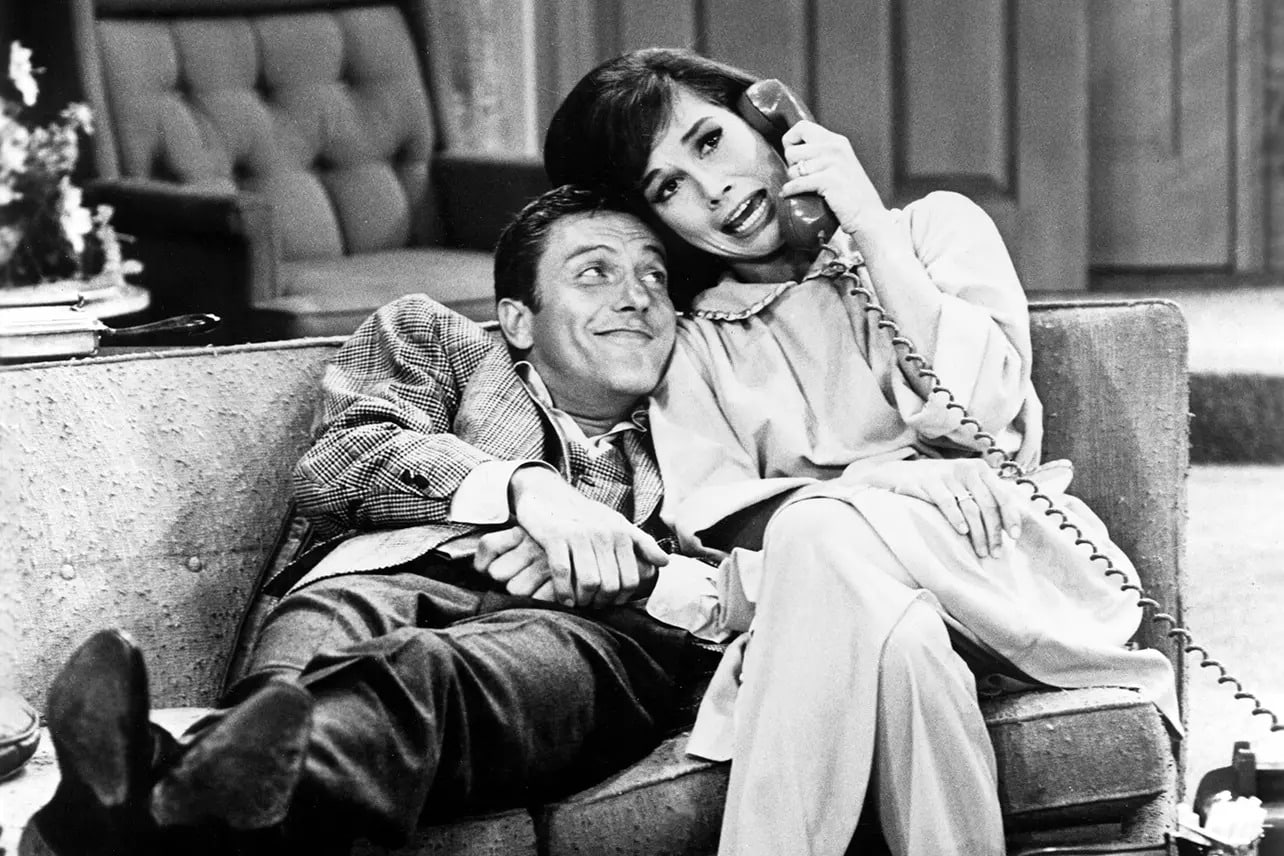
The wholesome hijinks of this 1961-66 Emmy winning black and white comedy shrewdly stayed away from any of the time turbulence or dated pop culture references. Then shocking capri pants wearing wife Mary Tyler Moore (more on her in a minute), their precocious son Ritchie Rosebud aka Robert Oscar Sam Edward Benjamin Ulysses David, and one pesky living room ottoman are golly gee stress enough for Dick Van Dyke’s (Diagnosis Murder) television writer husband and father Rob Petrie. Morey Amsterdam (Beach Party) and Rose Marie (The Doris Day Show) trade jabs as fellow writers on series creator Carl Reiner’s (Dead Men Don’t Wear Plaid) The Alan Brady Show. This life imitating art at work and at home structure allows for a myriad of song and dance sketches and variety episodes while winking at the behind the scenes on screen. Although the instrumental theme is a pleasant earworm, some of those musical half hours may be silly to viewers today. After a lengthy 158 episodes, a few twee dilemmas can get tiring, too. Fortunately, the blend of earlier fifties homemaker comfort and sixties workplace tongue and cheek shine a mirror on television’s adolescence – creating then progressive yet continually nostalgic pleasantries for the any audience.
The Mary Tyler Moore Show
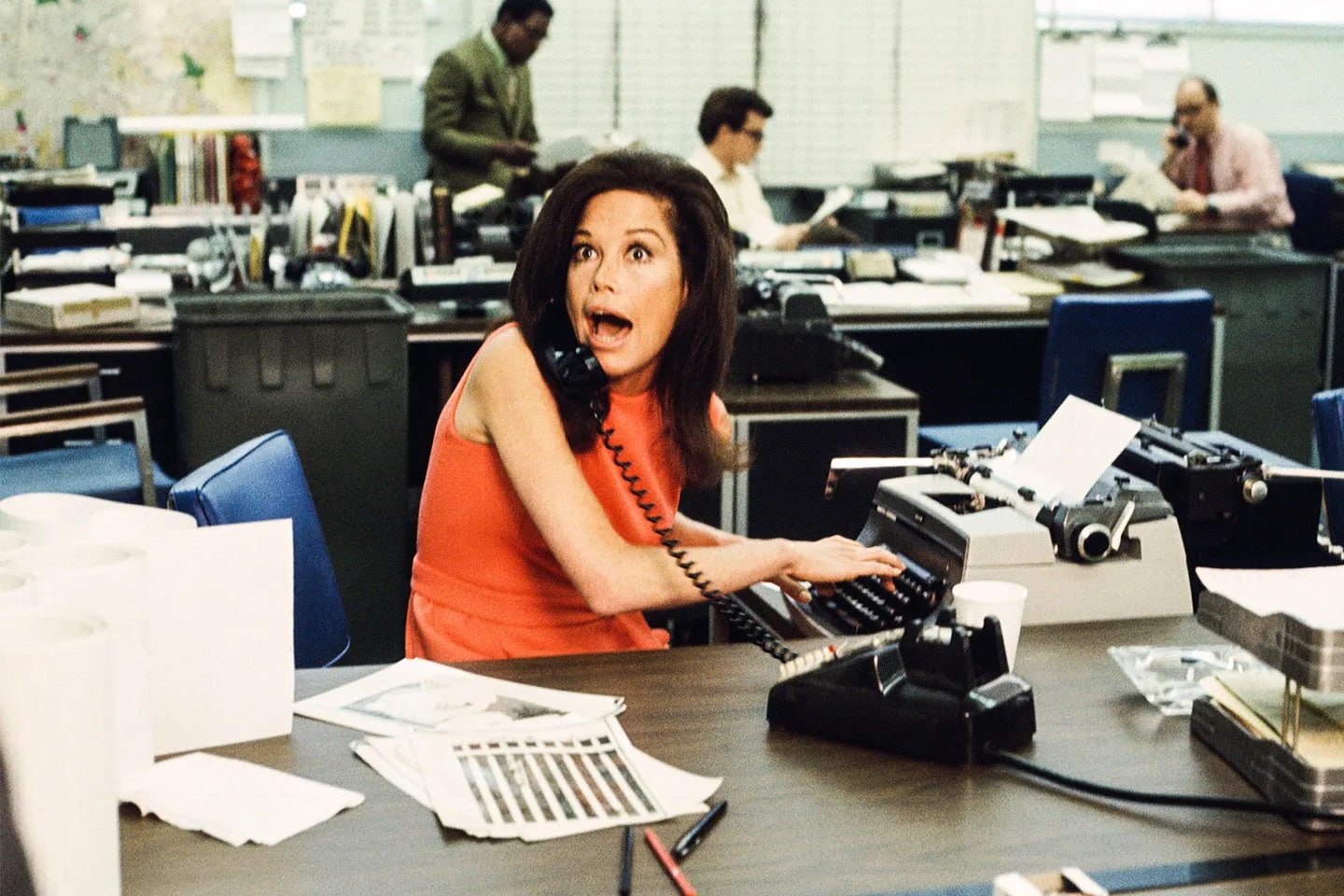
As the “Love is All Around” theme suggests, this award winning 1970-77 series never fails to make me smile. It’s easy to cite the famous “Chuckles Bites the Dust” Season Six laugh riot or the tissue inducing “The Last Show” finale as must see favorites and with very good reason. However, it’s the charming moments per episode from the ensemble that remain memorable – from Betty White’s (more on her too later) Sue Ann Nivens forcing everyone to sing Christmas carols for her premature holiday feast in “Not a Christmas Story” to when cranky boss Ed Asner (subsequently of the dramatic spin-off Lou Grant) takes half the veal prince orloff and has to put it back in “The Dinner Party.” When Mary’s mother says, “Don’t forget to take your pill” in Season Three’s “You’ve Got a Friend,” both Mr. Richards and Mary both answer, “I won’t!” This pushing the envelope banter is indicative of Mary Richards’ progressive characterization and groundbreaking sophisticated comedy. The series moves from well balanced sentimental romances and cozy home stories like “Toulouse Lautrec Is One of My Favorite Artists” toward workplace statements and ahead of its time social commentary in “The Good Time News” and the comedy keeps on giving today.
The Bob Newhart Show
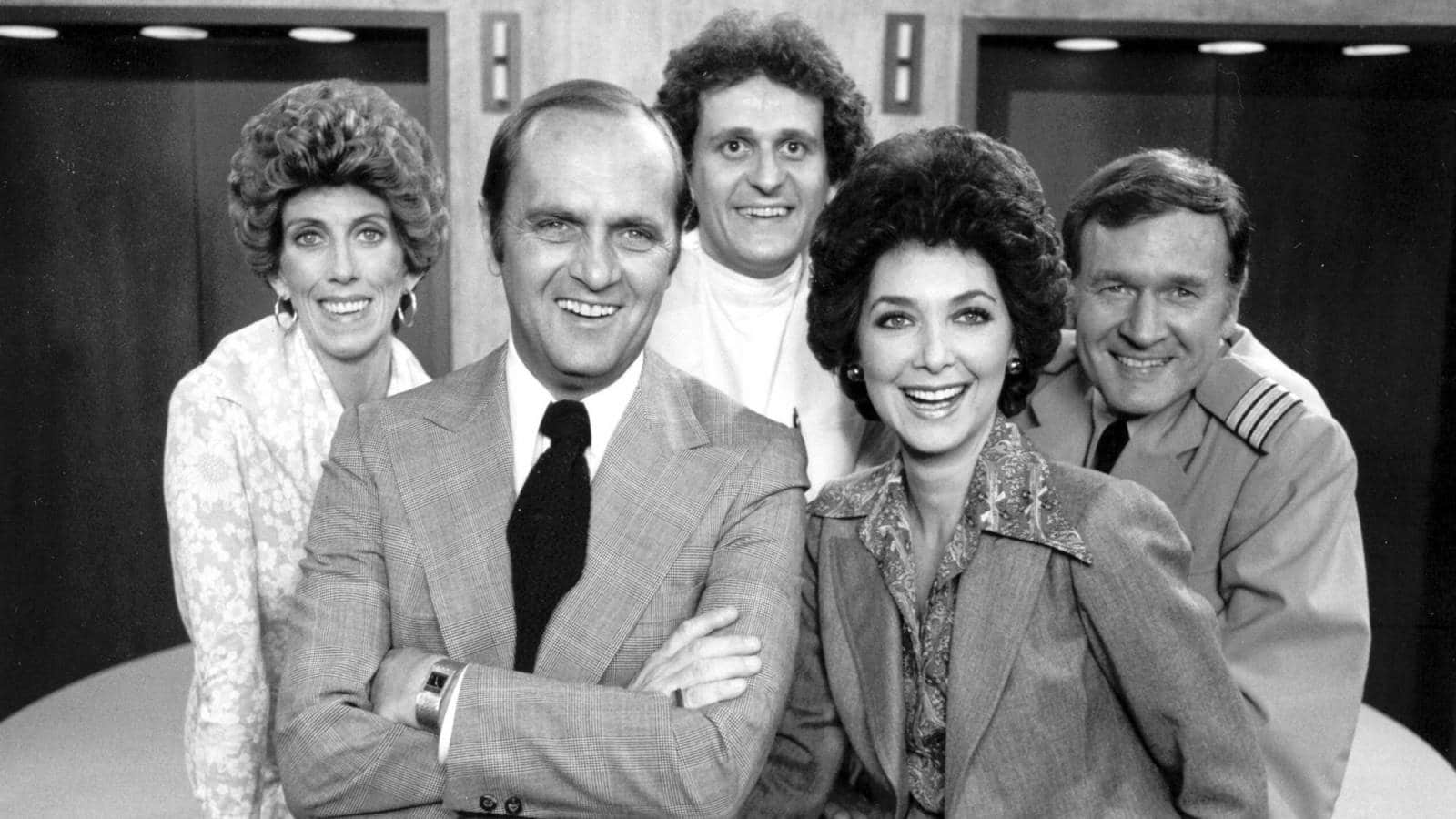
Debuting in 1972, psychologist Bob Newhart and his school teacher wife Suzanne Pleshette (The Birds) bucked sitcom trends by being child free and not treating the audience as naive in their healthy give and take relationship. The series remains sly with upscale wit thanks to Newhart’s phone shtick and the hilarious ensemble intermixing the home and office. Divorce and modern liberation are tackled with impressive elan in “Have You Met Miss Dietz?” but Bob resents when his wife’s IQ is higher in “Mister Emily Hartley.” Astute observations and humbling role reversals accent excellent debates, progressive smarts, and period pastiche when Emily’s redecorating compromises Bob’s king of the castle comforts in “The New Look.” The series peaks with the famous “Over the River and Through the Woods” drunken Thanksgiving episode – hysterically brimming with $93 worth of Chinese food and a turkey in the dishwasher. Although the later seasons grow repetitive with slapstick over personality; the deadpan zingers, timely humor, and refined repartee come round in the end, and the eighties follow up Newhart continues the toppers.
Are You Being Served?
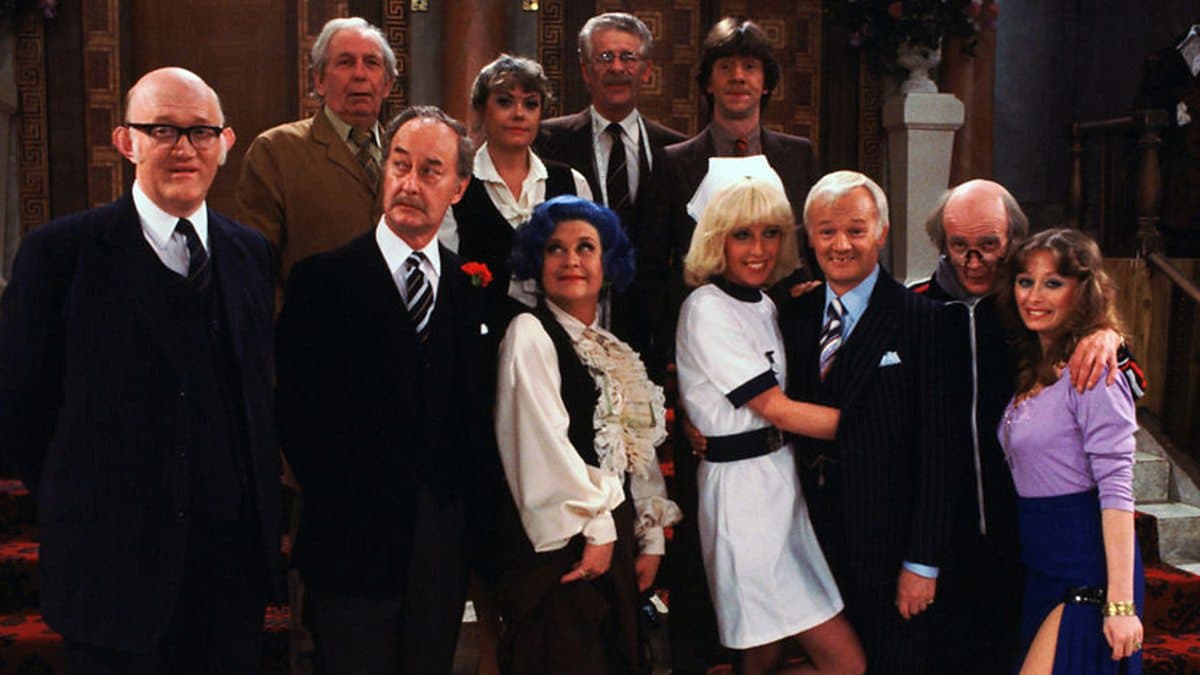
Let’s jump across the pond for a different kind of comedy thanks to this 1972-1985 British hit permeating with feline double entendres, cheeky innuendo, and saucy puns. Fourth wall winks with “I’m free!” and “And my pussy is unanimous in that!” catch phrases counter of the time racism, sexism, ageism, and just about every other of phobia or cultural faux pas that unfortunately litters the charm here. However the series embraces its preposterous department store technicalities for a bemusing classism commentary – who gets to stand where, which positions permit wearing a bowler hat, who can’t call whom by their first names, who’s dead common or living in a detached house. More humorous, still relatable half hours tackle low wages, union strikes, and the lack of upward mobility while faulty display models, advertising errors, and ne’er do well store sales provide sight gags and disastrous misadventures. Terrible fashions, zany hair colors, and ridiculous song and dance contrivances accent lovable characters such as Mollie Sugden’s (That’s My Boy) Mrs. Slocombe and John Inman’s (Take a Letter, Mr. Jones) Mr. Humphries even when late in the series storylines retread on previous debacles. At only seventy episodes, this is easy to marathon before more gone country fish out of water comforts in the Grace & Favour sequel.
The Golden Girls
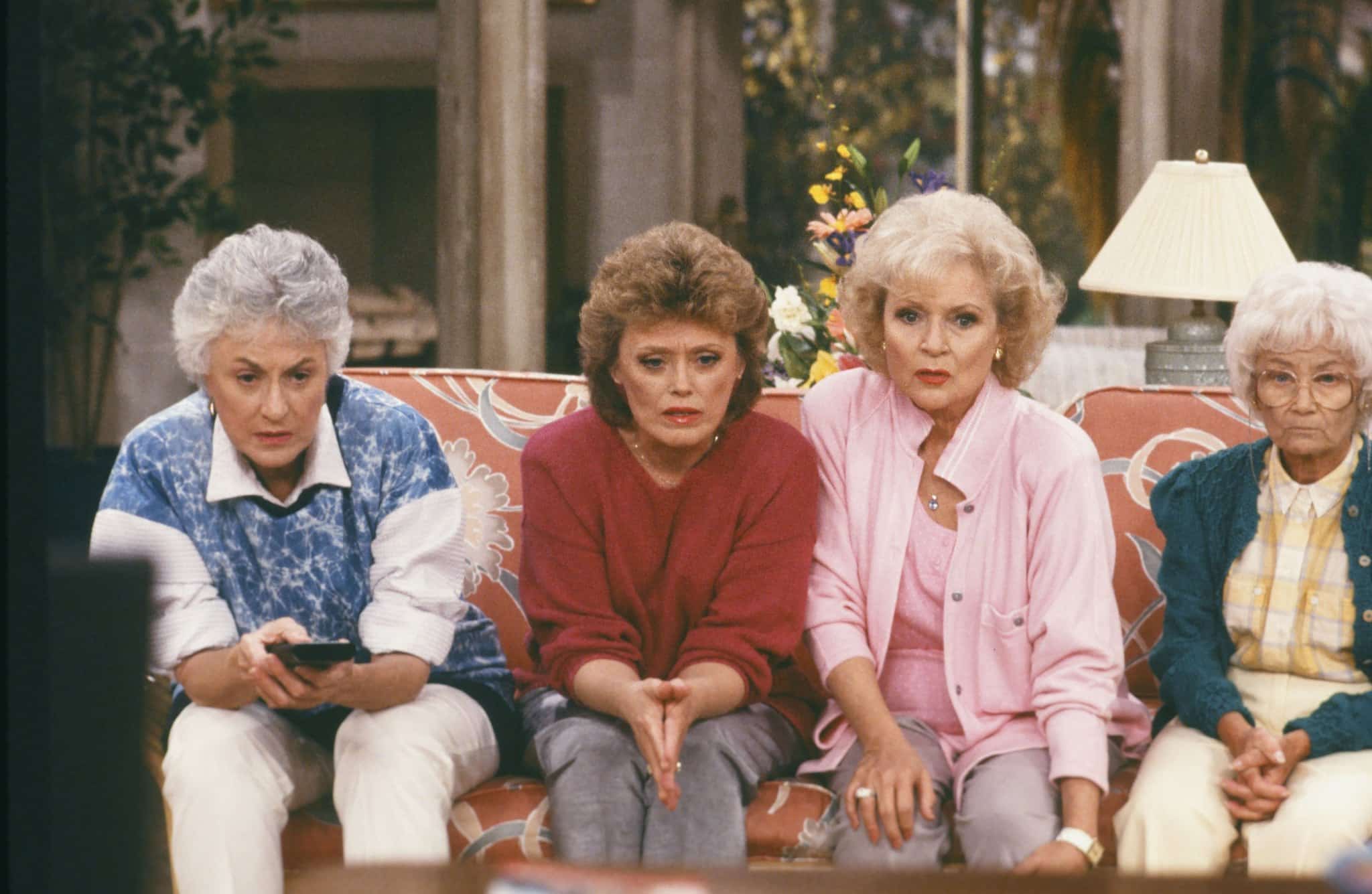
The house exterior of 6151 Richmond Street never matched the interior floor plan and the inconsistent continuity of this eighties staple remains bemusingly nerve-racking. Family members, character histories, and previous plot points change as needed – Angelo became Angela, college professor Miles was somehow also in the witness protection the entire time, and the existence of children or grandchildren are erased as needed. Nonetheless, the ever quotable comedy writing for Bea Arthur (Maude), Rue McClanahan (Mama’s Family), Betty White, and Estelle Getty (Empty Nest) – all four Emmy winners – stays top notch with snark for every situation. Be it “From the pit of my stomach to the porcelain of the bowl…” or “The moon is hanging awful low in the sky tonight, isn’t it, Busty?”, clever wit addresses women of a certain age fears and numerous dating hilarities. Progressive health, abuse, and discrimination topics in “Sick and Tired,” “Adult Education,” and “Isn’t It Romantic?” remain taut. Rather than resorting to gimmicks, the four ladies largely handle the delicate humor with chemistry and poise. By time viewers get to season seven’s “The Case of the Libertine Bell” murder mystery, the writing is on the wall, but “Look fluffhead, why should I deny being in denial? I never said I was in denial. You are the one who said I was in denial, and don’t you deny it.”
Enjoy discovering hours of lighthearted laughs and retro charm by binging these classic sitcoms!
Don’t forget to follow us on Twitter or Instagram or like us on Facebook.
Kristin Battestella writes articles, editorials, and reviews for several websites, magazines, and print publications including I Think, Therefore I Review and Search Magazine. Previously a traditionally published author of speculative fiction and the Fate and Fangs vampire novels, Kristin’s DIY Halloween how-tos and Kbatz Krafts articles have been featured at http://HorrorAddicts.net and in two Horror Addicts Guide to Life anthologies. In addition to sewing and @KbatzReviews Youtube vlogs; Kristin can be heard on the Women InSession podcast at http://InSessionFilm.com alongside her written classic film discourse. Kristin is also active in the local author community, having chaired writing events and conferences with the South Jersey Women Authors.
Discover more from
Subscribe to get the latest posts sent to your email.
